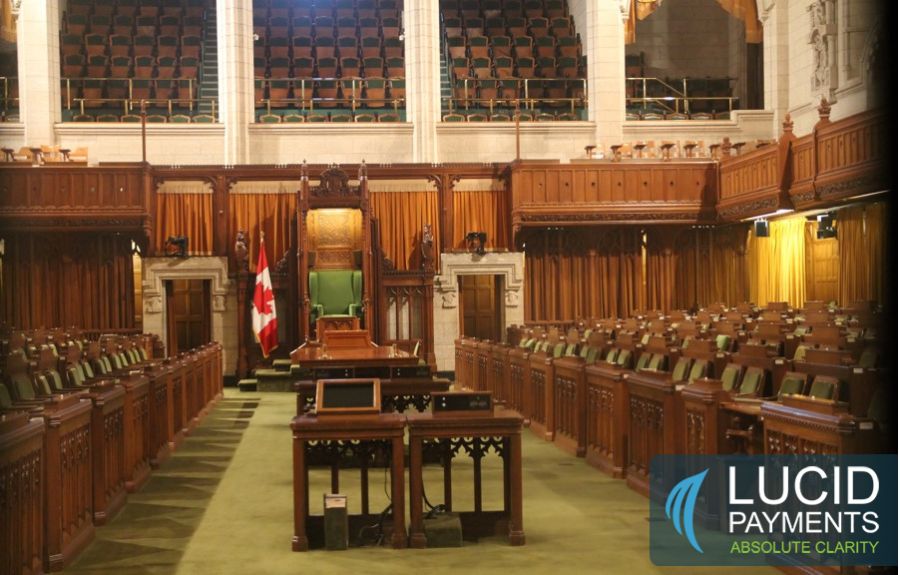
We’ve been in the payment processing industry for well over a decade, and throughout all those years, we’ve watched as small business owners in Canada have been forced to pay exorbitant interchange fees.
Time and again, we’ve been told that these fees are a necessary evil, required to help mitigate the risks associated with credit card transactions and encourage the use and acceptance of these payment methods.
But while there may be some truth to those statements, it’s obvious that when it comes to interchange fees in Canada, credit card companies, banks, and other card issuers have been taking advantage of small business owners for quite some time.
Aside from artificially inflating the cost of interchange fees, these organizations have done whatever they can to prevent small business owners from getting any relief.
Whether it’s stopping them from imposing surcharges on customers who choose to use cards with higher interchange fees, or not allowing them to refuse to accept these cards, they never cease to find new ways to exploit small business owners.
And because very few people use cash anymore, and this trend is bound to continue, the companies involved have little incentive to change their ways, because they know that business owners are basically being forced to pay these fees.
For years now, stakeholders have been petitioning the government to step in and do something about these out-of-control interchange fees, but up until recently, we haven’t heard much.
However, in the feds’ fall economic statement, the government announced that it has draft legislation ready to go in case it feels it’s necessary to regulate these fees.
But the feds have been talking about regulating interchange fees for many years now, and still, nothing has come of these statements.
So, is Canada’s federal government finally going to put its money where its mouth is and actually regulate these fees?
At the end of the day, this is anyone’s guess, but if you want to learn more, you’ve got to keep reading.
Because in this article, we’re going to look at the feds’ track record on this matter, give our opinion on the issue, and let you know what you can do to help lower the cost of interchange fees in Canada.
If you have no idea what interchange fees are, or you just need a reminder, you can check out our article on What You Need to Know About Interchange Rates in Canada.
The Fight Against Interchange Fees in Canada

Truth be told, when we first started in this industry, as it pertains to interchange fees, things were a heck of a lot worse.
Back then, it wasn’t uncommon to see reward cards or business cards charging up to three per cent or more in interchange fees on every transaction.
However, in recent years, presumably because of all the pressure from business owners and advocacy groups, coupled with the government’s statements, and the fact that more and more business owners are choosing to go with non-bank providers, the cost of these fees seems to have gone down.
But even today, depending on the nature of the business, it’s not unheard of for a small business in Canada to spend hundreds or even thousands of dollars per month on these fees.
Nevertheless, over the last few years, small business owners have found some solace in a few small victories.
For instance, there was a class action lawsuit, which was finally settled after more than a decade of litigation, despite the banks and credit card companies named in the lawsuit refusing to admit to any alleged liability or wrongdoing.
This lawsuit alleged that Visa and Mastercard, along with several banks, “conspired to set higher interchange fees and to impose rules restricting merchants’ ability to surcharge or refuse higher cost Visa and Mastercard credit cards.”
As a result, small business owners in Canada have been eligible to receive a portion of this $131 million settlement, in the form of a rebate.
Also, as a result of this settlement, merchants in Canada can now pass the cost of interchange fees onto their customers by imposing a surcharge on credit card transactions.
If you want to learn more, you should check out our article, which discusses why You May Be Eligible for an Interchange Fee Rebate from this Credit Card Class Action Settlement.
Moreover, in 2020, due to a voluntary agreement between the feds and credit card companies, interchange rates fell slightly, to an average of 1.4 per cent per transaction from the previous rate of 1.5 per cent.
And while you can’t quite call this a victory, for several years now, we’ve seen consistent statements from the federal government on this issue, despite the fact that they haven’t done much of anything about it.
The Government’s Posturing on Interchange Fees
As part of its 2019 election campaign, the Liberal Party of Canada committed to “eliminating the ‘swipe fee’ on HST and GST for credit transactions”, which the Canadian Federation of Independent
Business (CFIB) estimated would save businesses nearly $500 million a year.
But even now, nearly four years later, this doesn’t appear to have happened yet.
And after negotiating with the credit card companies in 2020, but only being able to bring interchange fees down by a meaningless 0.1 per cent, the government continued to posture.
In the 2021 federal budget, the Canadian government once again brought up the issue of reducing interchange fees, pledging to work toward lowering the cost of these fees, and ensure that small businesses would be able to “benefit from pricing that is similar to large businesses”.
In addition, it also published a news release, vowing to hold “consultations with stakeholders” and provide more details as part of its next fall economic statement.
However, while it did go ahead with the consultations, the economic statement in question was devoid of any mention of the terms interchange, or even credit card, for that matter.
Next, in late 2021, the government quietly released a statement, saying that its consultations on this matter were closed and once again vowing to detail its next steps in a subsequent economic update.
But with the panic caused by the pandemic making everyone afraid to use cash, interchange fees continued to pile up for small business owners, and several more months passed, with no word from the government until it released the 2022 federal budget.
Unfortunately, it contains only a vague, three-sentence long blurb on this subject, which states that the government is “committed to lowering the cost of credit card fees” and “will continue current consultations with stakeholders”.
And now, after almost four years of posturing on this issue, in its latest economic statement, the government has finally started to make some more concrete commitments.
What the Government’s Saying Now

In its 2022 fall economic statement, the government claims “We’re working to deliver lower credit card fees for small businesses, to help the businesses at the heart of our economy and our communities—and the Canadians who support them.”
Getting more specific, it says that “The government intends to enter into negotiations with payment card networks, financial institutions, acquirers, payment processors, and businesses to lower credit card transaction fees for small businesses in a manner that does not adversely affect other businesses and protects existing reward points for consumers.”
It also states that “the government is publishing draft legislative amendments to the Payment Card Networks Act. Should the industry not come to an agreed solution in the months to come, the government will introduce this legislation at the earliest possible opportunity in the new year and move forward on regulating credit card transaction fees.”
So, after almost four years of non-stop posturing on this issue, the government finally seems to be making some commitments, providing some much-needed hope for small business owners.
But can we really trust them to do anything meaningful on this issue?
Well, according to an article from the CFIB, the 2022 fall economic statement did provide some “reasons for optimism”, as it offered a “stronger commitment to reduce credit card processing fees for small business.”
The article cited the fact that “Over three-quarters (78%) of business owners report credit card processing fees are unaffordable for their business, a situation that has been made worse by consumers shifting to digital payment methods and away from cash during the pandemic.”
It also quoted CFIB president Dan Kelly, who said, “While I’m concerned credit card fee relief may be too slow to help deal with the immediate inflationary cost pressures facing small business, the direction is positive and should encourage negotiations with card networks and banks towards an early deal.”
Our Take on the Issue
We hate to be so negative about this, but considering the government’s track record in recent years, we wouldn’t be surprised if this is just more posturing.
Because the fact of the matter is, after months of consultations and years of making one meaningless announcement after another, the feds have nothing to show for their efforts but a pathetic 0.1 per cent reduction in interchange fees, and that’s only a voluntary agreement anyway.
Moreover, some of the language in the government’s latest economic statement is concerning, to say the least.
For example, the government claims to want to lower interchange fees for small businesses “in a manner that does not adversely affect other businesses and protects existing reward points for consumers.”
But how can they possibly hope to do that, considering the fact that these “other businesses”, meaning banks and credit card companies, will undoubtedly be adversely affected by this kind of regulation?
At the same time, how will consumers’ reward points be protected if it’s the business owners paying the interchange fees who are subsidizing the reward programs?
And what about this statement that the government will only introduce this legislation “Should the industry not come to an agreed solution”?
This is incredibly vague, and it doesn’t bode well for business owners, as it’s not clear what the agreed solution might be, who’s going to be agreeing to it, and whether or not that “solution” will actually benefit business owners.
Furthermore, do we really want the government to step in on this issue, given its abysmal track record in dealing with so many other issues that affect the lives of millions of Canadians?
And even if they do go through with regulating interchange fees, how do we know that the banks and credit card companies won’t just find a way to charge new fees to recoup whatever losses they might suffer?
The truth is, no one knows, but at this point, nothing would surprise us, and unfortunately, this latest statement from the government is leaving us with more questions than answers.
But luckily, as a small business owner, there is something you can do to help with this issue.
What Small Business Owners Can Do
Despite all this talk from advocacy groups, business owners, and government, there really is no reason for credit card companies and banks to lower interchange fees, and currently, there’s nothing stopping them from continuing to gouge small business owners.
That being said, from our perspective, the main reason why we’ve been seeing interchange fees go down in recent years is that more and more people are giving their business to payment processing providers that aren’t banks.
This lights a fire under the banks, letting them know that business owners are looking for alternatives, and encouraging them to be more competitive.
With that in mind, we need more of this, and small business owners need to know that despite what the government says, it’s likely that nothing’s ever going to change if they keep getting their payment processing from the banks.
So, whether you choose to go with Lucid Payments, or any other non-bank provider, we support you in your decision to boycott the banks when it comes to payment processing.
If you do, you’ll be doing yourself and every other small business owner a favour by helping to encourage competition and drive down the cost of interchange fees.
Are you tired of getting gouged on interchange fees? We love to help small business owners get a better deal on their payment processing. Give us a call today to learn more about what we can do for you.